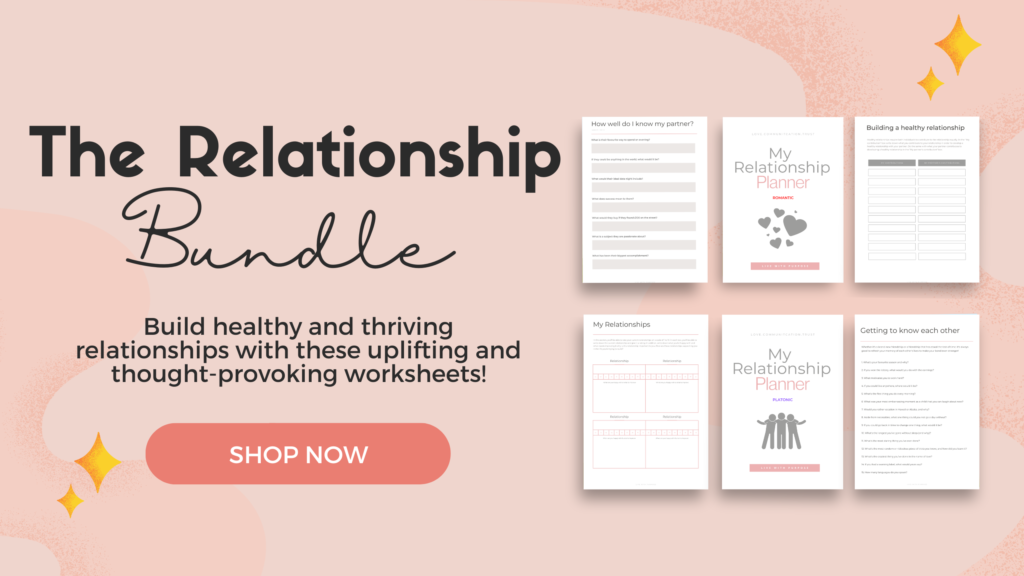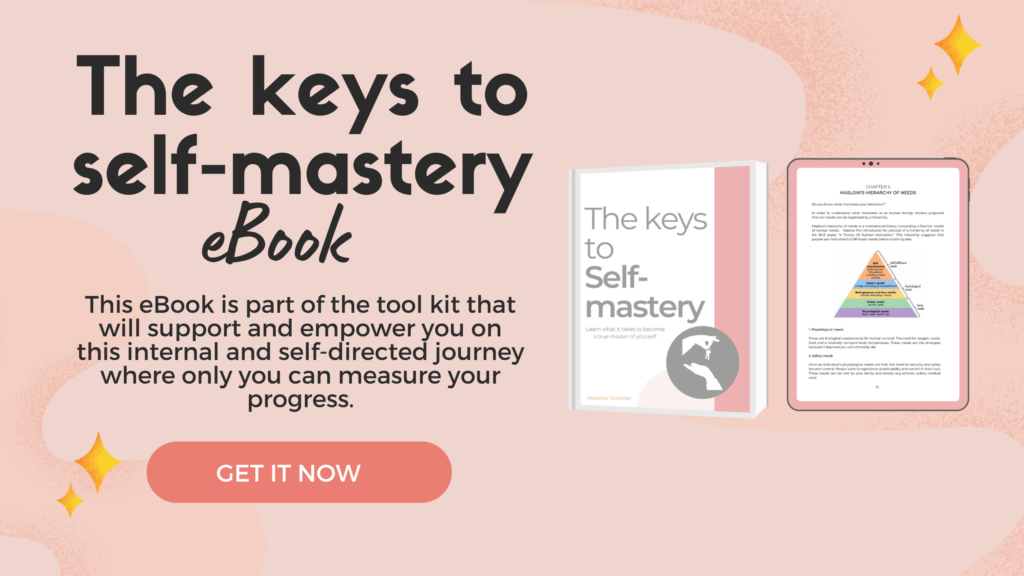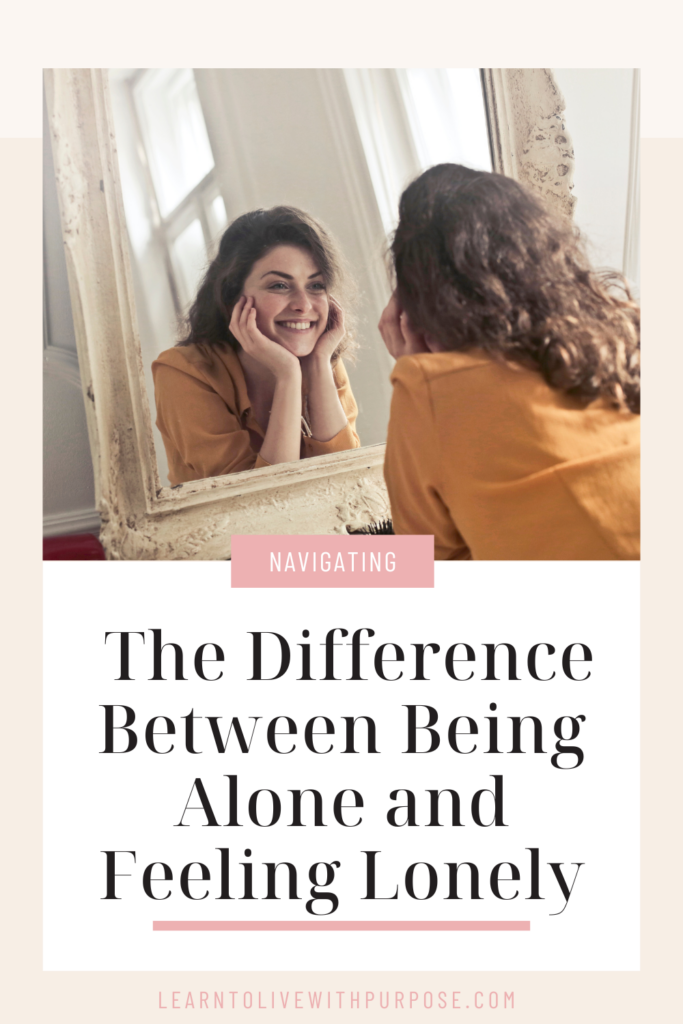
In a world that often emphasises the value of social connections, there’s an important distinction to be made between being alone and feeling lonely.
Many people associate solitude with a sense of isolation or sadness, but the truth is that being alone can be a fulfilling and rejuvenating experience. 😊
In this blog post, I will explore the nuances of being alone versus feeling lonely, understanding the importance of solitude, and embracing the positive aspects of both states.
Let’s get to it. 💕
The Difference Between Being Alone and Feeling Lonely:
Being Alone:
Being alone is a state of physical solitude, where you find yourself without the company of others. It can occur by choice or as a natural consequence of circumstances. Spending time alone provides an opportunity for self-reflection, relaxation, and personal growth.
It allows you to engage in activities that bring you joy, pursue hobbies, or simply enjoy a moment of peace. Being alone can be a deliberate choice, a time to recharge and connect with oneself. 🥰
Feeling Lonely:
Loneliness, on the other hand, is an emotional state that arises from a perceived lack of meaningful connections. It’s possible to feel lonely even in a crowded room if the connections are superficial or unfulfilling.
Loneliness is often characterised by a sense of emptiness, isolation, or a longing for deeper human connections. It’s a complex emotional experience that can impact mental and physical well-being. 😟

Embracing the Positive Aspects of Being Alone:
1. Self-Discovery:
Being alone provides an opportunity for self-discovery. It allows you to explore your thoughts, feelings, and interests without external influences. Use this time to reflect on your goals, values, and aspirations. Self-discovery is a crucial aspect of personal growth and can lead to a deeper understanding of oneself.
2. Independence:
Embracing solitude fosters independence. When you’re comfortable being alone, you become more self-reliant and less reliant on others for your happiness. This independence can empower you to make decisions based on your own needs and preferences, leading to a more authentic and fulfilling life. 🥰
3. Creativity:
Solitude often sparks creativity. When you’re alone with your thoughts, you have the mental space to generate new ideas, think critically, and engage in creative pursuits (yaay). Many artists, writers, and innovators find inspiration in moments of solitude, leading to the creation of meaningful and impactful work. 🎨
4. Rest and Rejuvenation:
Being alone allows for rest and rejuvenation. In a world filled with constant stimuli, taking time for solitude can be a form of self-care. It provides an opportunity to relax, recharge, and focus on activities that bring you peace and joy, contributing to overall well-being.

Addressing the Challenges of Feeling Lonely:
1. Cultivating Meaningful Connections:
If loneliness arises from a lack of meaningful connections, focus on cultivating relationships that nourish your soul. Seek out individuals who share your values and interests. Join clubs, organisations, or communities where you can meet like-minded people. Focus on getting yourself out there. Quality connections are often more fulfilling than a large social circle. 🫂
2. Volunteering and Giving Back:
Engaging in volunteer work or contributing to your community can alleviate feelings of loneliness. By helping others, you not only make a positive impact on the world but also connect with individuals who share a common purpose. Volunteering provides a sense of belonging and fulfillment.
3. Seeking Professional Support:
If loneliness becomes a persistent and overwhelming emotion, maybe consider seeking professional support. A therapist or counselor can provide guidance and a safe space to explore the root causes of loneliness. Addressing these issues with professional help can lead to a more fulfilling and connected life. 🫶
Finding Balance:
The key to a fulfilling life lies in finding a balance between being alone and fostering meaningful connections. Embrace solitude as a time for self-discovery, creativity, and rejuvenation. At the same time, actively cultivate relationships that bring joy and fulfillment. Recognise that both states are essential for a well-rounded and satisfying life. 💕
Conclusion
Being alone and feeling lonely are two distinct experiences, each with its own set of opportunities and challenges. Embracing solitude allows for self-discovery, independence, creativity, and rest. However, if loneliness creeps in, it’s crucial to address it by cultivating meaningful connections, volunteering, or seeking professional support. You are not alone. ❤️
Understanding the nuances between being alone and feeling lonely empowers you to navigate both states with intention and purpose. Ultimately, finding a balance between solitude and social connections contributes to a rich and fulfilling life. Embrace the positive aspects of being alone, foster meaningful connections, and savor the journey of self-discovery in this beautiful dance between solitude and companionship.
Pin this post for a reminder 📌 👇

Related Blogs
Things to Say “No” to for you to Live a Happier Life
How to Stop Settling For Less Than You Deserve
How to Become the Best Version of Yourself: A Guide For 20-Somethings
Many people spend a lot of effort trying to avoid change but change is an unavoidable constant in our lives. Sorry to break it to you if you didn’t already know that. If you can learn to cope with change, you’ll lower your risk of having anxiety and depression. This is because the feeling of not being in control of your life can feel unbearable and paralysing which can deeply affect your mental health. No one likes the feeling of knowing that their efforts are fruitless.
If you can’t cope with change, only a minor amount of stress can make you feel overwhelmed about any aspect of your life. Making you more likely to struggle when trying to accomplish goals. Let’s face it, the bigger your goals the more pressure you’ll face. So if the thought of any drastic change in your life overwhelms you then you will only manage to cope with setting small goals that probably won’t get you very far.
Studies have shown that people cope with change in their lives in two ways: Escape coping or Control coping.
Escape coping is based on avoidance. You will take specific actions to avoid the difficulties of change. For example, you could deliberately show up late for important meetings or constantly avoid going to interviews for a new job.
Control coping on the other hand is proactive and positive. You refuse to behave like a “victim” of change and embrace it instead by managing your feelings, getting support and doing whatever you can to be a part of the change.
In reality, most of us respond to major change with a mixture of escape and control coping. Control coping is a better coping mechanism to use as it’s impossible to avoid the reality of inevitable change for long without it damaging your mental health.
If you’re able to cope with change, you’re most likely resilient (good on you). Though your environment and genes may influence your level of resilience that amount is not set in stone and can be increased no matter where your resilience level is. Coming out of your comfort zone and practicing stopping the negative thoughts that come in your mind can help boost your ability to deal with change and help you create a life that is adaptive to new places and unexpected life events.
Here are a few healthy practices to put in place to increase your level of resilience and coping with change.
1. Realise that good change can also cause stress
When we go through positive life changes such as getting the job you’ve been dreaming of or having a baby, it can still feel like a great deal of stress. Sometimes even dread. Bear in mind that even though you can be going through a positive change that change can still create stress just like a non-positive change. Stress is just your body’s way of dealing with change. It’s totally normal to feel this way when something good has happened, just don’t let it ruin the whole experience.
2. Check your thought patterns
In times of change, it’s easy for your mind to see everything in black and white or assume that the worse will occur. If you take the time to examine your thought patterns and assess how rational they actually are, it will eliminate a lot of unnecessary stress.
If you’re not sure how to slow down your mind then practice relaxation techniques such as mindfulness and deep breathing (there are some cool apps dedicated to relaxation such as Headspace and Calm). If you can feel more in control of your brain and how you can evaluate major change you’re on the right track to becoming more resilient.
3. Remember your priorities
Resilient people see change as an opportunity rather than something to fear. Transitions in life allow you to consider where your priorities lie. What’s really important to you? How do you really want to spend your time on this Earth? With a clear sense of your goals and values, you will find that your mind and body can be more resilient when it comes to the stressors of change.
Humans are social creatures by nature so experiencing a sudden change in your life alone can cause you to go into a meltdown. Talk to friends and family who have experienced similar changes or consider finding external support such as your community, a doctor or a counselor.
You can’t avoid change, but you can live a life of resilience. Embrace the transition and see this new challenge as an opportunity to thrive.

4. Give yourself a break
In times of change, you may feel overwhelmed and not in control. You may feel like you’re not living up to your expectations of yourself. You are allowed to have breaks and once in a while and do less than what is humanly possible. If you’re someone with an unbelievable work ethic then I know that taking breaks when you’re in your element can be extremely hard but all your heading to is burnout if you think taking breaks is unnecessary. Believe it or not but no one functions at 100 percent all the time. Part of living a productive lifestyle includes taking regular breaks such as taking 5-15 minute breaks every 60 minutes.
5. Evaluate your level of control
Sometimes it’s easy to fixate on a situation that you’re not in control of or on people who may never change their way of thinking. Rather than focus on the things you cannot control, resilient people focus on the things they can control. Evaluate your level of control in a situation by asking yourself “ What can I take responsibility for in this situation?” When you actively look for opportunities to work towards change that is possible, you’re less likely to feel stuck in difficult situations.
6. Ask yourself “What’s the worst thing that can happen”
We’re often scared of change because we’re scared of the unknown. A good way to deal with the unknown is to think things through… rationally. Imagine all of the possible outcomes both good and bad and write them down. Doing this puts things into perspective, as you’re able to see if you’re being rational about the situation at hand.
7. Redirect certainty
Uncertainty is the enemy of our biological impulses. If we are unsure whether an animal is a housecat or a bloodthirsty lion, we’re definitely going to be in trouble. Our brain doesn’t like the odds of equations with unknown variables, so it defaults to negative bias for safety.
To help soothe the uncertainty that’s causing your brain to fire off its stress responses, level the playing field with neutral self-talk phrases such as “Being uncertain simply means that I do not know the future. It does not mean that the future is bad.”
In summary
Since change is inevitable, embrace it. It can lead to beautiful opportunities, even if that change came from a deep loss. When we greet uncertainty and the unknown with self-love and care we have a better chance of maintaining good mental health during the changes that happen in our lives and finding our way to a future that holds many new adventures.
Related blogs
Did you know that people on my email list sometimes get exclusive discounts on my products? Join the community and save yourself some coins!
Freshly-squeezed inspiration, and no-nonsense tips + tricks to improve your life delivered to your inbox weekly.
Subscribe to my newsletter
Subscribe
You're all signed up!
Be sure to whitelist our email address so that all the goodies make it to your inbox.
